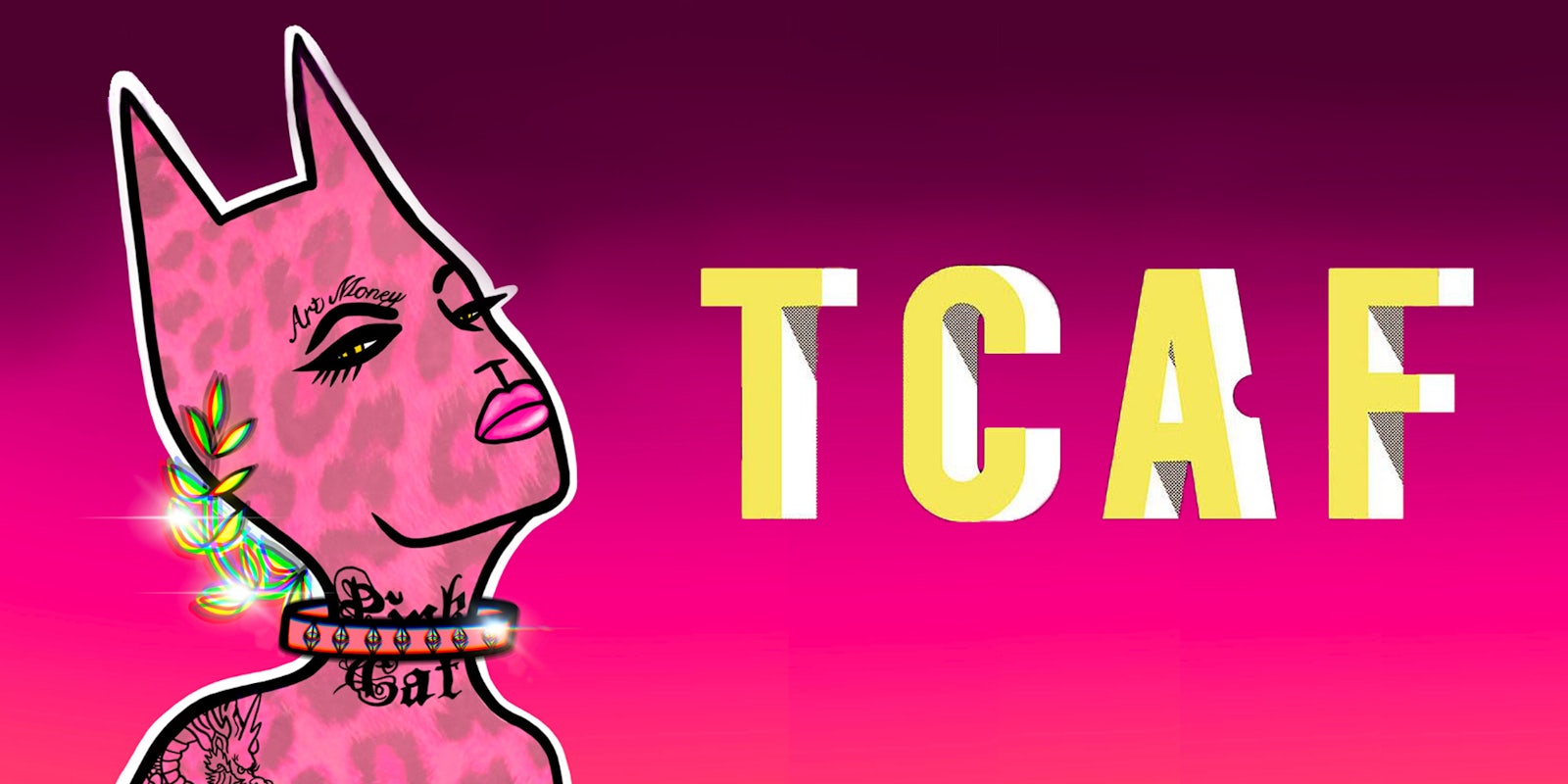When the Toronto Comic Arts Festival announced NFT creator Pink Cat as a featured guest, the convention organizers should have expected backlash.
Widely criticized for their environmental impact and connection to financial scams, NFTs are doubly controversial in the comics community, where many artists have witnessed plagiarism from NFT creators. This automatically made Pink Cat an unpopular choice of guest, sparking a social media meltdown that culminated in TCAF withdrawing her invitation on Tuesday morning.
Announced on Saturday, Pink Cat’s guest appearance was met by a wave of demands that she be removed from the program, prompting Pink Cat to call her critics “SICK DOGS.” This kicked off a three-day Twitter brouhaha involving accusations of plagiarism, racism and cultural appropriation.
Pink Cat is the avatar of artist Saba Moeel, appearing in single-panel cartoons featuring relatable captions like, “It’s not always important to be right. Sometimes it’s important to be kind.”
Described by the L.A. Times as “Gen Z Garfield,” Pink Cat has 240,000 followers on Instagram, branching out into NFTs last year. Her work is noticeably different from TCAF’s other featured guests, all of whom publish critically acclaimed narrative comics.
As Pink Cat faced more scrutiny, people quickly found evidence that she’d traced much of her art from other sources, including Tank Girl comics, Disney cartoons, and vintage advertisements. Responding to accusations of plagiarism, Moeel said she copied Tank Girl because “she is the only strong female comic that is a realistic badass, not looking like a sex doll.”
This failed to engender much sympathy, partly because it suggested a lack of knowledge or respect for the comic book medium. (Tank Girl was created in the 1980s by two men and is far from “the only strong female comic.”)
Moeel, who was born in Iran and grew up in the U.S., compared her tracing strategy to foreign soldiers looting art from Iraqi museums. This continued in a series of tweets where she highlighted her Middle Eastern background, suggesting that she was being targeted for harassment as a woman of color. “Big organizations come out to try to destroy my community of 90% women, mostly WOC like me,” she wrote.
Moeel also accused her critics of being bigoted white men, 4chan trolls, and “people who love the central banking system.” However, the backlash actually appears to come from a diverse array of people across the indie comics community, objecting to Moeel’s NFT work and overall attitude. Some of her most prominent critics are women of color, including bestselling graphic novelist Ngozi Ukazu, who withdrew from TCAF in protest, saying that Pink Cat “explicitly commodifies Black culture.” (In a now-deleted 2019 interview, Moeel claimed that “Pink Cat is black” because “black culture is dominant in the United States culturally.”)
Rather than being a racially-motivated hate campaign, the criticism of Pink Cat began as a straightforward denouncement of NFTs, expanding into specific ethical and artistic critiques. In addition to the accusations of tracing and plagiarism, some commenters also accused Moeel of racism, anti-Semitism, and transphobia, citing comments she’s made on Twitter.
On Tuesday morning, TCAF published a statement announcing that Pink Cat’s invitation had been rescinded: “TCAF initially extended a programming invitation to Moeel on the basis of their daily digital comics work on Instagram, and the personal importance that work had to one of our team members. At the time of this invitation, the organization was unaware of Moeel’s online conduct, plagiarism, or allegations of tracing.”
The statement emphasized that TCAF “does not accept money to program featured guests” and “No one in the TCAF organization has financial ties to Moeel,” allaying any suspicions that Pink Cat’s invitation involved some kind of behind-the-scenes crypto deal. Saba Moeel has not yet commented on this announcement.
The Daily Dot has reached out to Saba Moeel for comment.


